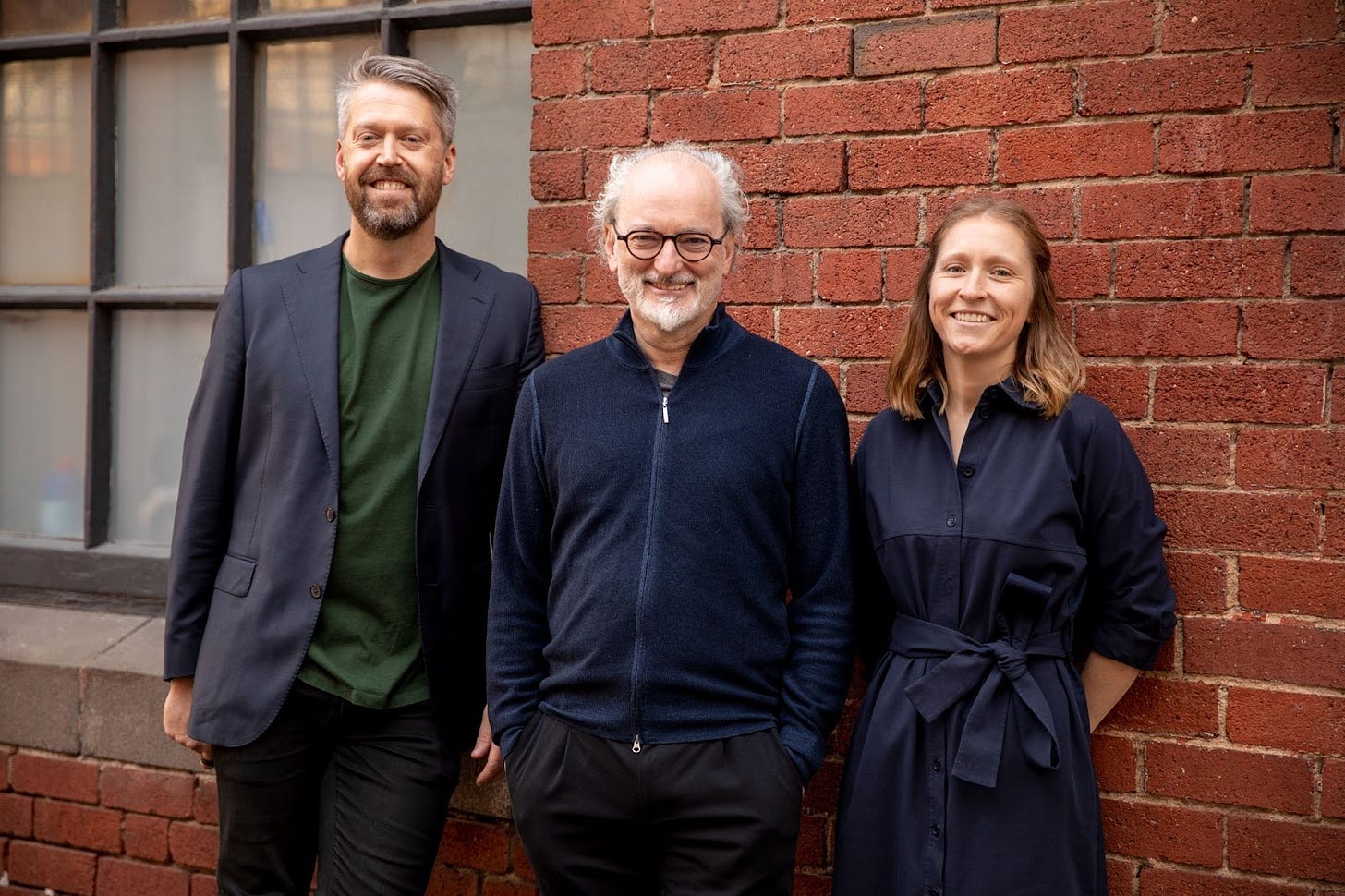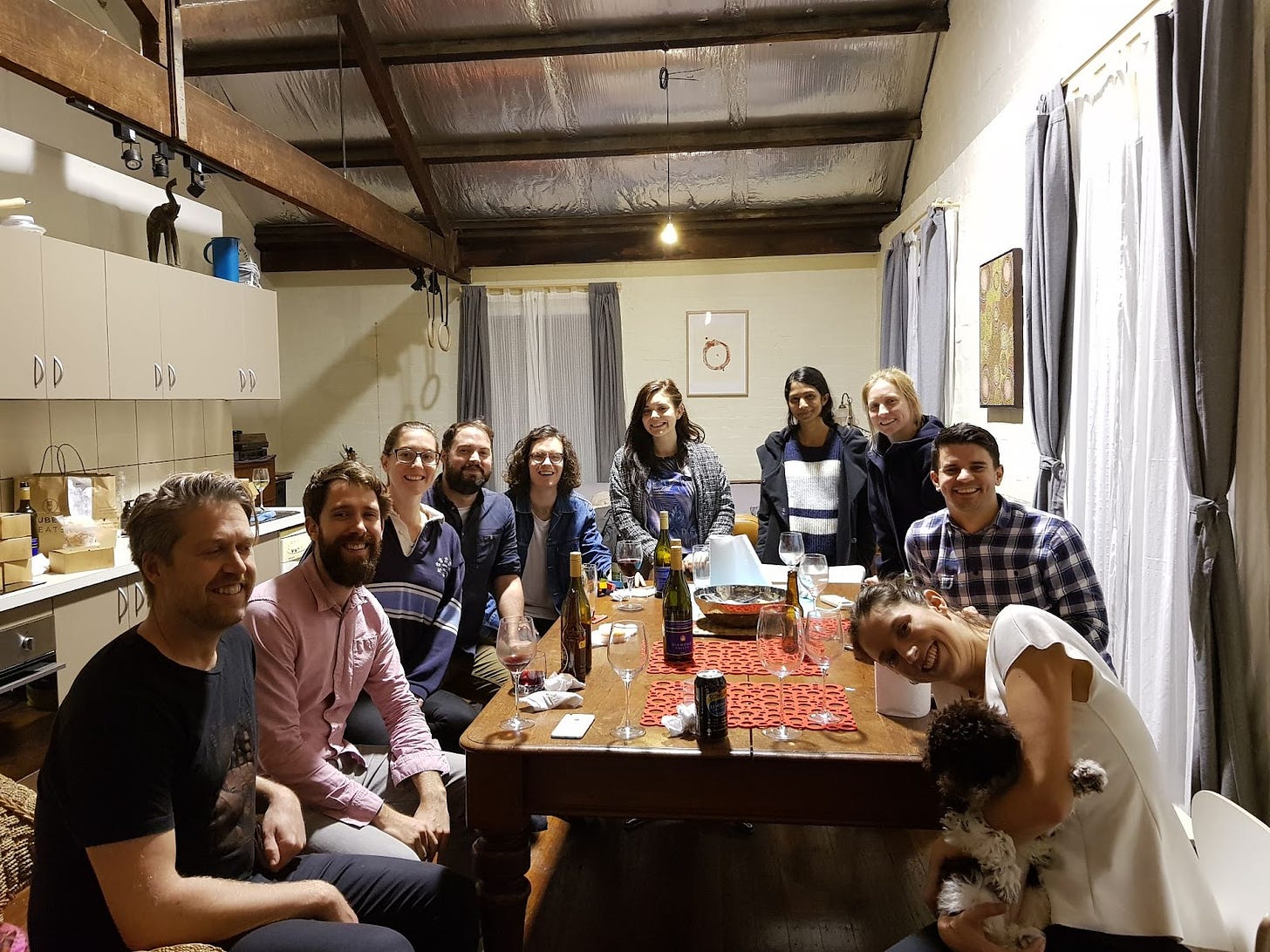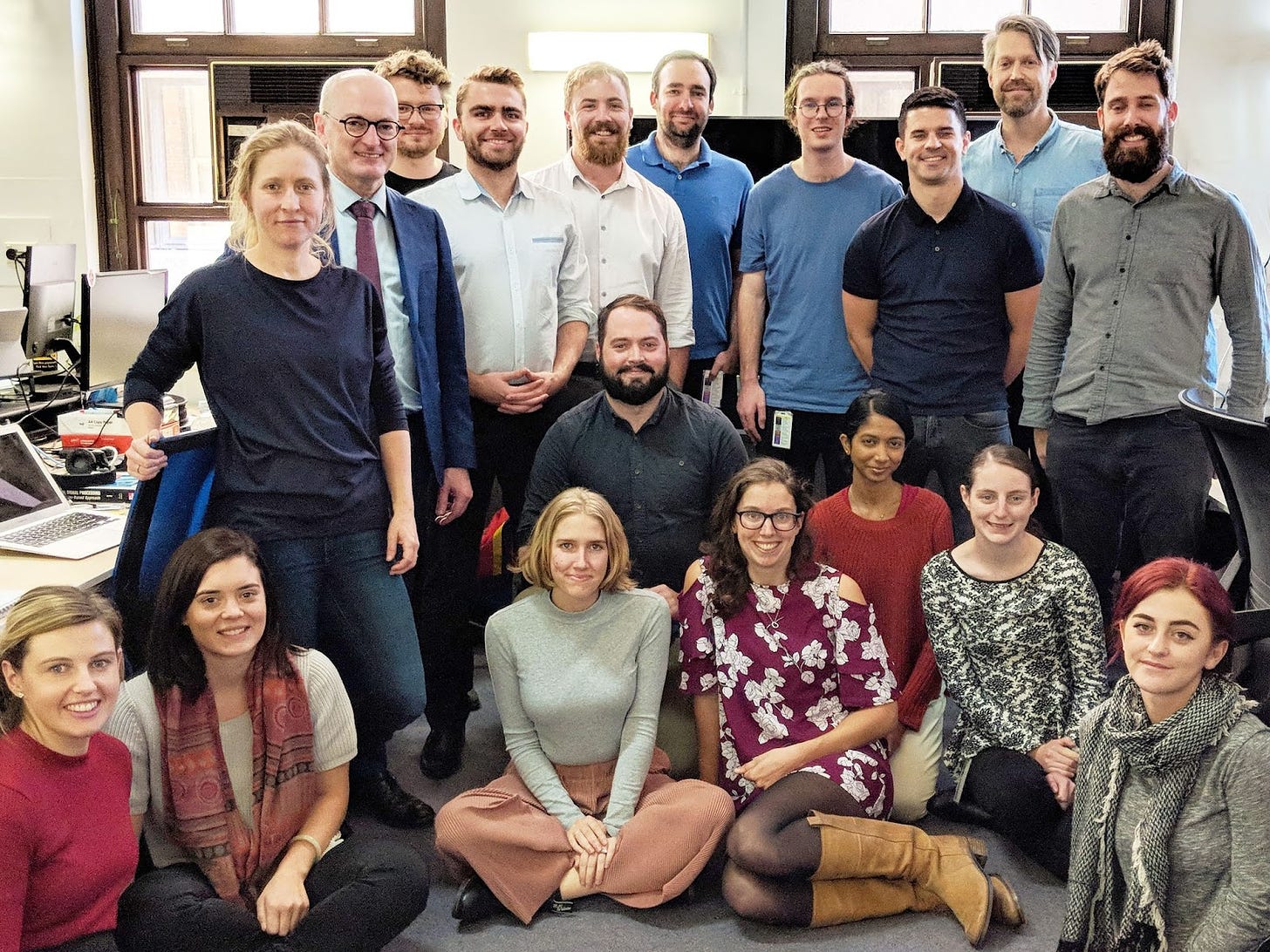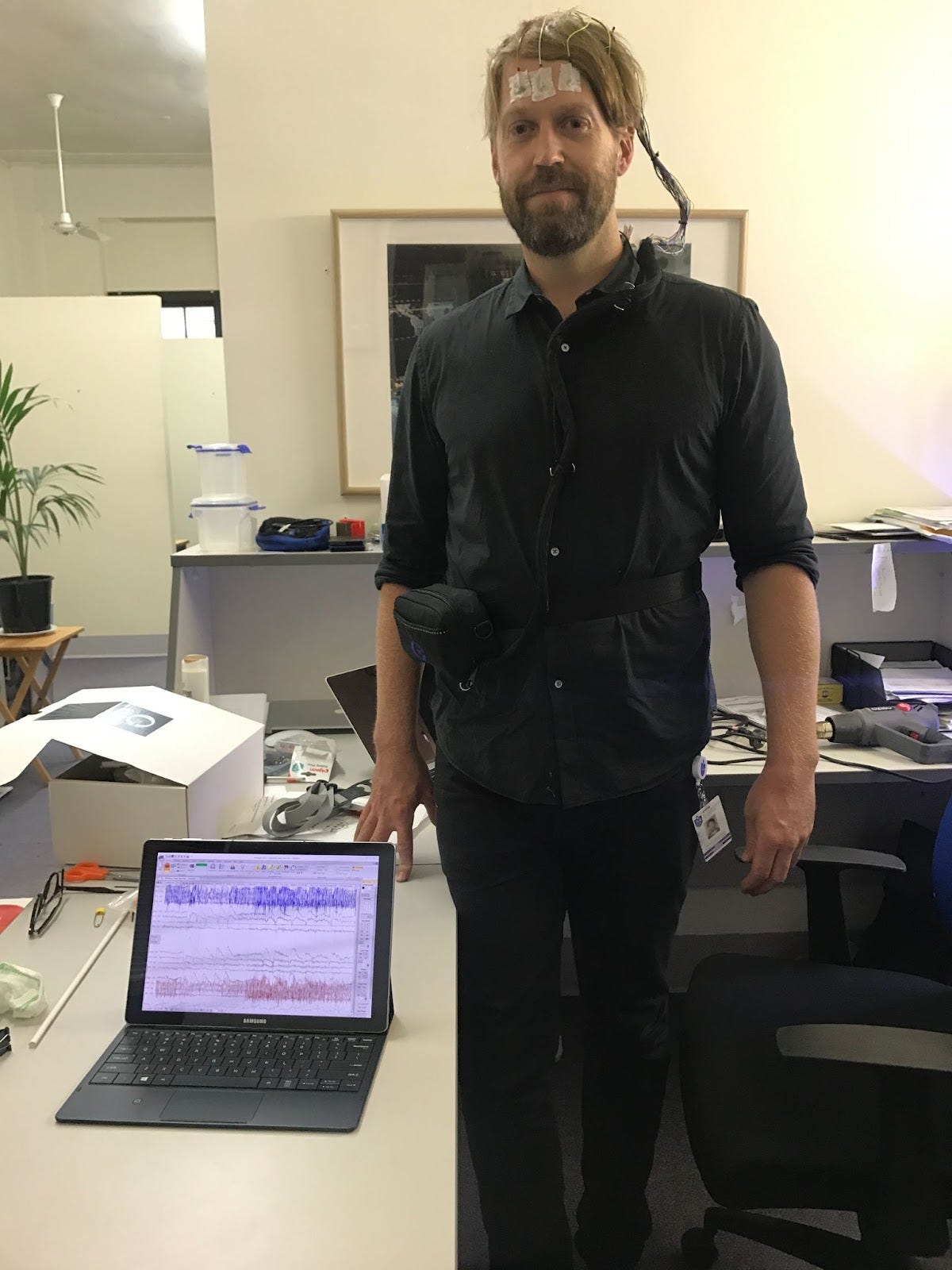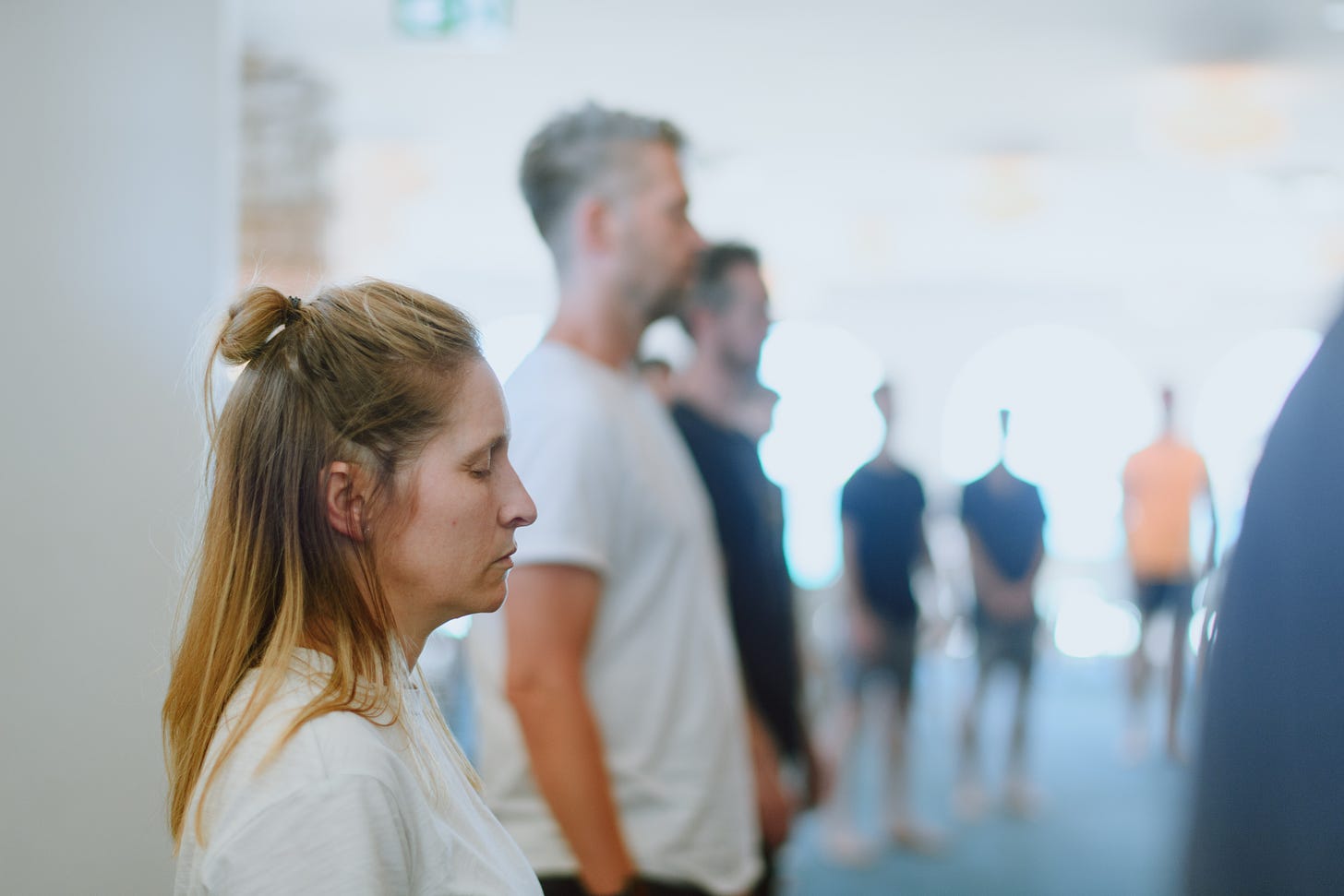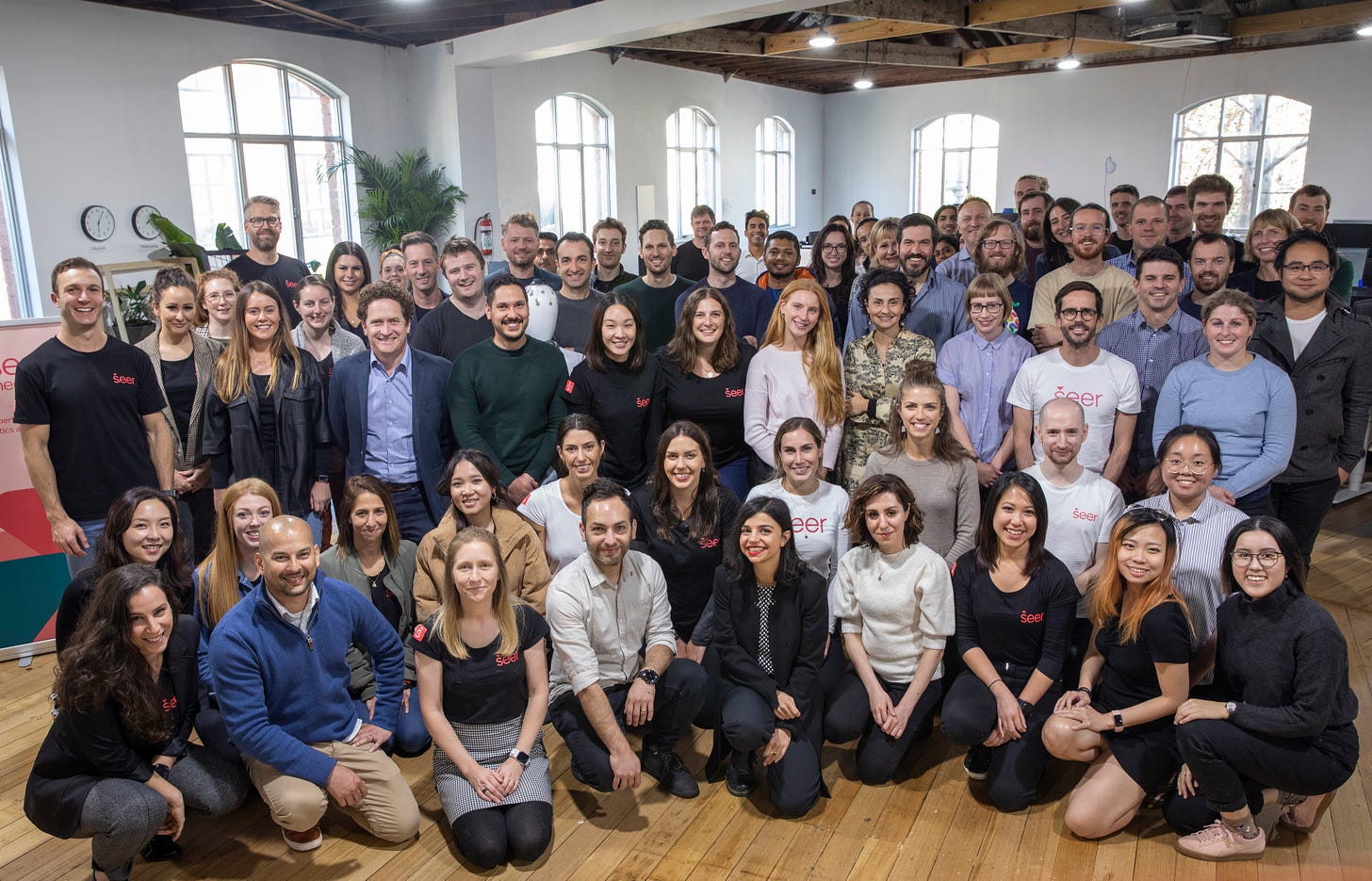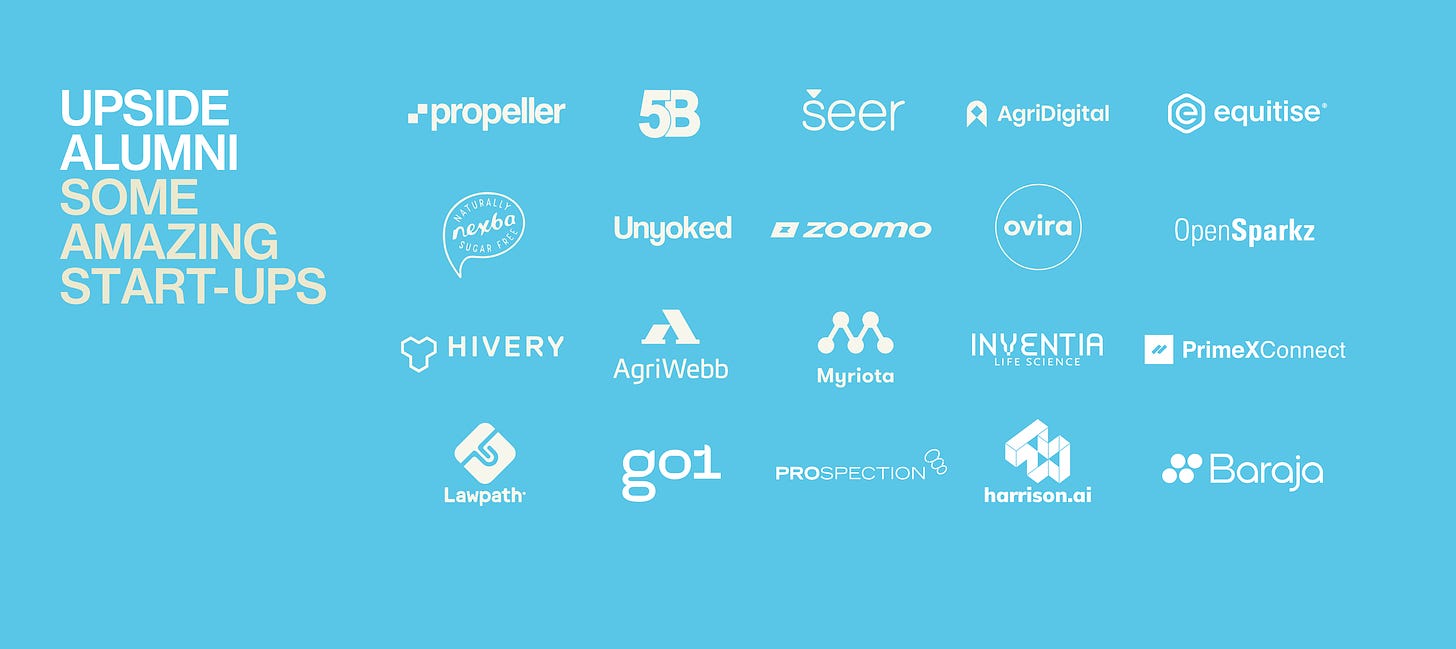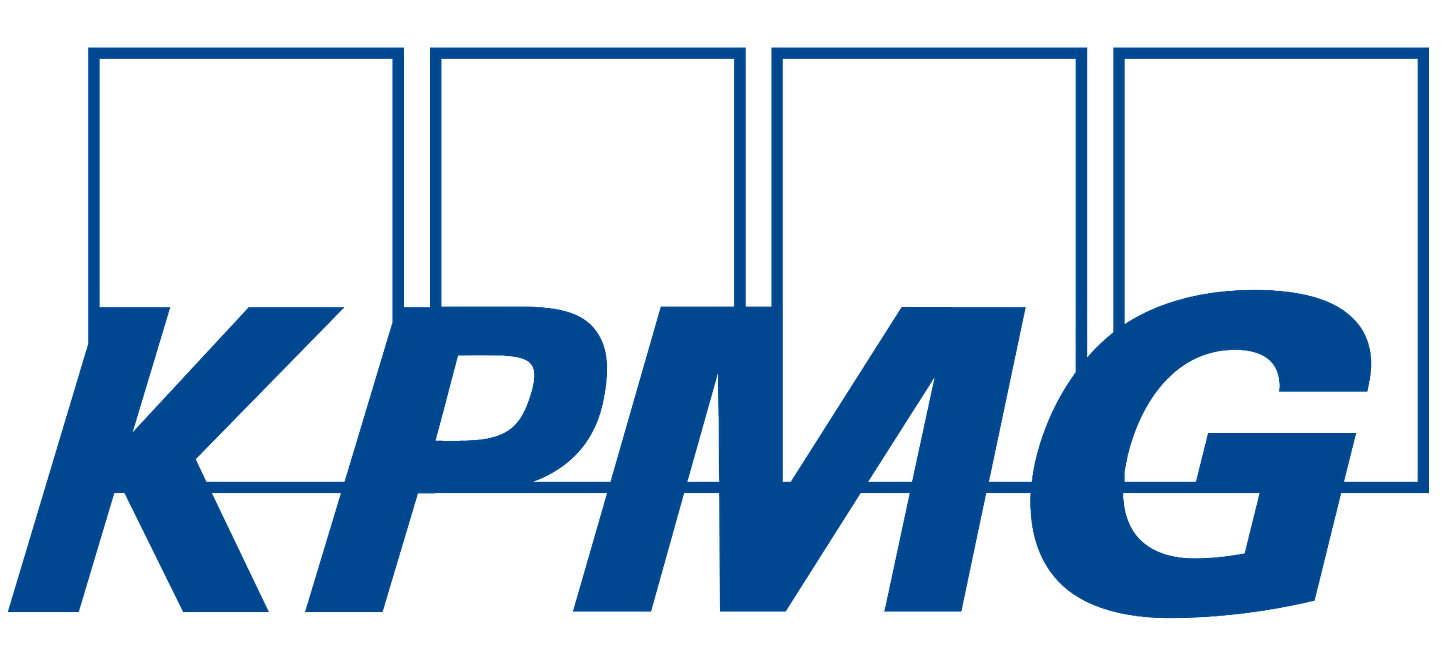

Discover more from Upside Founder Programs
Founder feature: George Kenley, Seer.
With the backing of serious investors, thousands of patients and a team of 200, George Kenley, shares her thoughts on leadership, juggling work and family, and becoming a better version of herself.
Dean Freestone and George Kenley, Co-founders of Seer.
On being a founder.
How did you come to be a founder of Seer?
I’d say I came to be a startup founder quite serendipitously. I worked in construction and project management for 10 years, specialising in large scale Healthcare and Research facilities. When I had my first daughter and was on maternity leave, I was still considering going back to the construction industry once my leave was over. Yet at that time, I was getting more involved working within the family’s business, and it was then when Dean, one of Seer’s co-founders, approached me.
I grew up in Echuca, where my father co-owned and operated several businesses, with two other local families. One of those families was Dean’s, so I have known Dean for a very long time.
Dean moved on from Echuca to have a very successful career in research, which is where he met our other co-founder Prof. Mark Cook. The origins of Seer were born from the insights and developments made by these two during the Epilepsy research and clinical trials they were involved in.
All three Co-founders, Dean Freestone, Mark Cook and George.
Dean and Mark had the ambitious goal to revolutionise how Epilepsy is diagnosed and managed. From this idea, they needed help to execute. So Dean returned to Echuca and approached his father’s old business partners for advice and initial funding to get their idea off the ground. This is when I got involved - through building a business plan and then execution - from there, I was sucked in and couldn’t look back.
I feel that I was at the right place at the right time.
Tell me about a time when you’ve been really challenged as a founder?
All the time! But more than particular situations, I find overcoming certain aspects of myself challenging. For example, I’m naturally an introvert. I enjoy focusing on my own work, reaching goals, and keeping my head down in the process and reaching outcomes. But what felt like a small family business when we started is now soon to be a 200+ people company, and I'm actively trying to be better at engaging and connecting with everyone.
Seeing that Seer is only going to continue growing and that I'm not an extrovert, I need to constantly work on feeling more comfortable with being more open, approachable and engaged even when I’m having a shit day.
Share one of the key differences between being a very early stage founder and the role of founder on the Series A to Series B growth journey?
The main difference is the mindset shift from one stage to the other. Looking back, I think that as a founder, during those early stages, you are more focused on short-term goals, such as landing your first sale or expanding your next site. You focus on small incremental growth goals.
As the startup grows bigger and you go into the Series A or Series B part of the journey, your goals shift from a time standpoint, becoming mid-term or long-term goals. And they also shift in size and importance.
Another interesting difference is the naivety you have at the beginning. I was definitely naive to the ‘startup lifestyle’ thinking it would be a fun little adventure. It never crossed my mind where I personally would be regarding the long-term picture or where the finish line was - I understood the goals of the business but never considered my personal growth that would also come with that.
The real startup life.
What is the best thing about being a founder at this point in the Seer Medical story?
At this point in time, I enjoy that building Seer feels as if we were pulling together a complicated puzzle. We are greatly improving and focusing on designing the outcome for a far bigger business, and I personally find that really interesting and rewarding.
But when motivation is dipping, we are also fortunate in the sense that we don’t have to dig deep to find evidence that our business has a dramatic and positive impact on the Epilepsy Community. It’s not hard to find stories of the heartfelt positive changes that we have made to someone’s life.
Regardless of our size, we’ve always been a for-purpose startup and we are here to change lives and help people. That motivation hasn’t changed throughout our story. That has always been, and always going to be, the best thing about being a founder of Seer.
Tell me about a time when you had to let go of in order to grow as a founder and a leader?
I am comfortable at letting go. We’ve hired such an amazing team of people. And the reason we’ve hired them is for them to own their domain of expertise. I am aware of my limitations - I’m a generalist - so handing over to a specialist to see them weave their magic is so rewarding to watch. As a founder I am typically always involved in the early stages of a project or new area of the business - but letting go, allows me to move on and shift focus elsewhere.
Early days with the Seer team and pooch.
Fortunately, I’d learned many years before in my job at Lendlease to trust the specialists I worked with. The scope and level of their knowledge was so extraordinary, and our projects so complex - that trust and understanding of all team members' roles and responsibilities was critical to ensure that outcomes were achieved.
Then when I had my son, two years ago, I had to step away for eight months - I couldn't juggle a newborn and keep up with the daily grind of being across everything and being involved in every detail. So for me, being able to let go is a relief - and to be honest it makes for a better outcome.
What is your approach to satisfying the requirements of the business, your own needs, and those of your friends and family?
I won’t deny it, I am still working on how to perfect the art of juggling family, business, and the mental load of life - and I definitely haven’t perfected it yet. I actually found the Upside program I completed this year, really opened up my eyes to some alternative tools that I could use to assist me in my personal and professional life.
The ever growing Seer team.
One critical element that I have discovered is that if I bring stress home with me, it does no-one any favours - be that myself, my family or my work colleagues. I have learnt to approach the many aspects of my life by calculating risk and prioritising according to what’s on fire and what can wait. Whatever will ‘burn the house down the quickest’ gets my attention first. Some issues may be left smouldering in the background for weeks or months. I try to check on them occasionally to gauge severity. If they can be left smouldering, then forget about it - remove it from your mental load, for the time being, move on to the bigger issues. This mentality can drive some people absolutely nuts, and they may not understand it. But that’s how I juggle and eliminate stress where it’s not required to ensure that I don’t take it home unnecessarily.
Another important approach that has helped me is knowing that if something is out of my control, I need to move on. If there’s nothing I can do about a situation, I am comfortable with moving on and, hopefully, learning from it.
Yeah, that was a f#@% up.
They say that failure is the best teacher. Tell me about an experience of failure that you are thankful for.
I don’t have one particular scenario, more like one area of the business that is consistently challenging, it's a work in progress, and I find I am always learning - that area is HR.
Managing people and teams to achieve an outcome is one thing - but navigating the personalities, needs, grievances and behaviours within such a large business is new to me, and introduces a whole new level of complexity.
Like any business, regardless of industry, staffing issues arise. In some scenarios we didn't appreciate the gravity of the situation - so our response was inadequate - which led to the loss of key staff members.
Dean showing off his brainwaves.
I am thankful for the experiences, as it has given me a newfound appreciation and respect for the power of good culture and good foundations in HR can have within a business. I have learnt that staff retention isn’t achieved through a good pay packet and job title - it is earned through providing meaningful work, acknowledgement, learning and growth opportunities, a sense of adding value and clear communication.
Paying it forward.
What practical advice would you give your pre-founder self about what lies ahead?
I would tell myself ‘jump all in’. I think I was a little cautious when we first started. If I would have jumped all in since the beginning, a lot of things would have been different or maybe easier. I can say this now, in hindsight, but back then I was very conscious about how many startups fail, and that kept me wary and maybe a bit too careful.
If you could recommend one thing to do in preparation for the founder journey what would it be, and why?
It sounds a little counter intuitive, but I would recommend them to stay naive. If you are entirely aware of how complicated and challenging a founder’s journey can be, it’s likely that it might appear too daunting, making you give up before even starting. I know it’s hard and challenging, but it’s possible.
And related to this, another piece of advice for someone that’s getting ready for the journey would be to learn to focus on one task at a time. If you see it all as one big scary activity or ambitious goal, it can become very difficult. How do you eat an elephant - one bite at a time.
(Re)sources of inspiration.
Tell me about a time when the going got tough - what are the things that kept you going?
Definitely the people that we work with. I love our team - and even though we are no longer a small close knit ‘family type business’, my family is still heavily involved in it. So this is not just an experience that I’m having on my own. When things get tough I not only keep going for myself, but also for them.
What are your go-to tools and resources that help you be a better founder?
I enjoy listening to podcasts about the areas and industries our business is involved with and related to my role as COO. But I’m also interested in listening or reading about staff management and HR, which are not my strongest areas but the psychology behind it fascinates me.
Learning why “Flexibility of body is flexibility of mind” at Upside 2021.
And the Upside Founder Program which was amazing. From all the resources I had during my career, it has been one of the best and was absolutely stellar.
Something new.
Think about the statement, “I am my own work in progress.” In what ways have you made progress in the last year?
The main progress I made last year was to become more aware and more comfortable with those situations that don’t come naturally to me, and that make me feel uncomfortable and awkward. As we all naturally do - we struggle with uncomfortableness in the face of situations or activities that are new, outside of our comfort zone, or tense personal interactions. It is still a work in progress, but I learnt to become more aware of what these situations might be, and how to combat them while keeping my sanity.
Just some of the Seer team, look at those beautiful faces!
What’s one thing you’ve learned from the Upside Founder Program that you are bringing into your founder and leadership role at Seer?
I’ve been fascinated by the ‘Executive vs Animal’ mindset we learned in the Program. In a few words, this theory suggests that when facing uncomfortable situations as Executives, we need to ask ourselves ‘why do I feel uncomfortable? Is it my animal instinct as in ‘fight or flight’? Is it because it’s a new, uncertain situation? ‘Is it because I’m risk-averse and therefore want to reduce uncertainty?.'
By asking the right questions to ourselves and analysing every step of our thought process, we can make better decisions as Executives. That lesson has greatly helped me as a leader and as a founder.
In a short sentence, what would you say to other founders about Upside?
It's a refreshing challenge. It allows you to question how you operate as a founder, not to doubt your own abilities, you don’t need to be something you are not, but to become a better version yourself.
We’re all a work in progress.
Upside Founder Programs help founders become the very best leaders for their businesses as they grow from late Seed stage and Series A to Series B, and beyond. Applications for the 2022 program close December 10th.
Upside Founder Programs are generously supported by KPMG High Growth Ventures.





